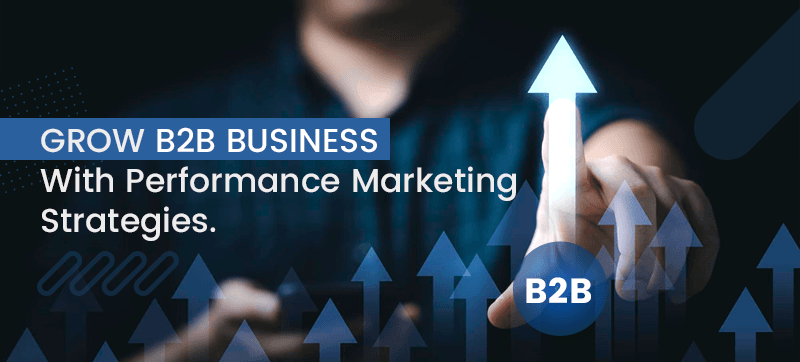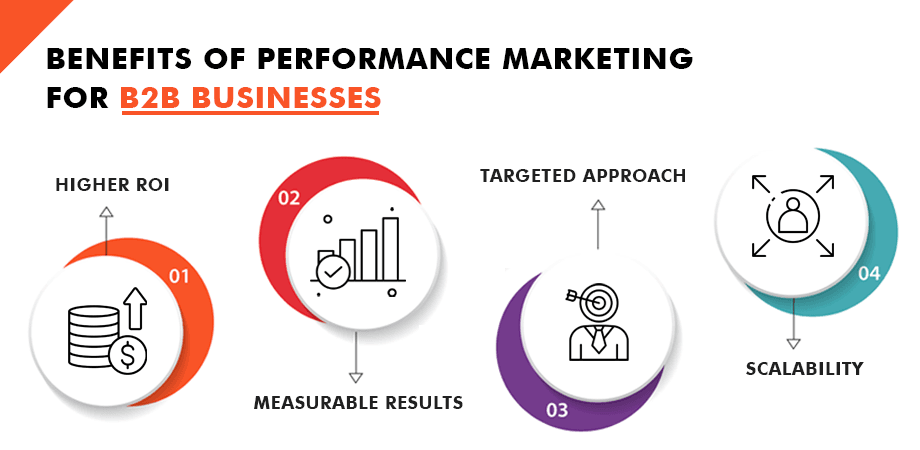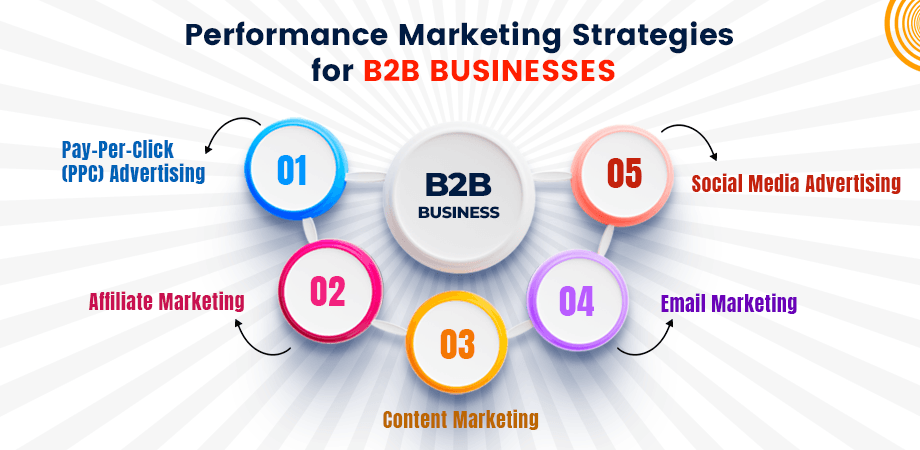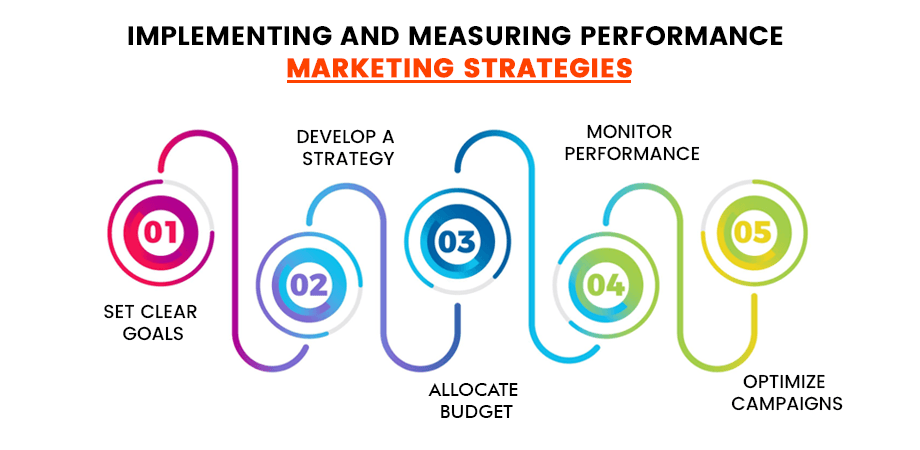In the dynamic world of B2B (business-to-business) marketing, staying ahead of the competition requires innovative approaches that not only attract new clients but also ensure measurable returns on investment (ROI). One of the most effective ways to achieve this is through performance marketing strategies. Unlike traditional marketing methods, performance marketing focuses on measurable outcomes, ensuring that every marketing dollar spent translates into tangible business results. This blog will explore various performance marketing strategies and how they can help grow your B2B business.
What is Performance Marketing?
Performance marketing is a comprehensive term that refers to online marketing and advertising programs in which advertisers pay marketing companies when a specific action is completed. This can include clicks, leads, sales, or other measurable outcomes. The core idea is that businesses only pay for successful transactions, making it a cost-effective and ROI-driven approach.
Benefits of Performance Marketing for B2B Businesses
1. Higher ROI:
One of the most significant advantages of performance marketing is its cost-effectiveness. Since you only pay for actual results, there’s minimal financial risk involved. This ensures a higher ROI compared to traditional marketing methods.
2. Measurable Results:
Performance marketing strategies rely heavily on data and analytics, providing clear and measurable outcomes. This allows businesses to track the effectiveness of their campaigns in real-time and make data-driven decisions.
3. Targeted Approach:
Performance marketing allows for highly targeted campaigns. You can reach specific audiences based on various parameters such as industry, company size, job roles, and more. This ensures that your marketing efforts are directed towards potential clients who are most likely to convert.
4. Scalability:
With performance marketing, businesses can easily scale their campaigns up or down based on performance. This flexibility allows for adjustments in strategy to maximize results without significant financial implications.
Key Performance Marketing Strategies for B2B Businesses
1. Pay-Per-Click (PPC) Advertising
PPC advertising is a model where advertisers pay each time their ad is clicked. Platforms like Google Ads and Bing Ads allow businesses to display ads to users who are searching for specific keywords related to their products or services.
- Keyword Research: Conduct thorough keyword research to identify terms that your target audience is searching for. Use tools like Google Keyword Planner to find high-volume and low-competition keywords.
- Ad Copy: Craft compelling ad copy that highlights the unique value proposition of your product or service. Include a strong call-to-action (CTA) to encourage clicks.
- Landing Pages: Ensure that your landing pages are optimized for conversions. They should be relevant to the ad content, load quickly, and include clear CTAs.
2. Affiliate Marketing
Affiliate marketing involves partnering with individuals or companies (affiliates) who promote your products or services in exchange for a commission on each sale or lead generated.
- Finding Affiliates: Look for affiliates who have a significant following in your industry. This could include industry bloggers, influencers, or complementary businesses.
- Commission Structure: Set a competitive commission structure that incentivizes affiliates to promote your products. This could be a percentage of each sale or a fixed amount per lead.
- Tracking and Analytics: Use tracking software to monitor the performance of your affiliates. This will help you understand which affiliates are driving the most traffic and conversions.
3. Content Marketing
Content marketing involves creating and distributing valuable, relevant content to attract and engage your target audience. This can include blog posts, whitepapers, case studies, and more.
- Content Creation: Develop high-quality content that addresses the pain points and needs of your target audience. Use SEO best practices to ensure your content ranks well in search engine results.
- Content Distribution: Share your content through various channels, including your website, social media, email newsletters, and third-party platforms. This will help you reach a wider audience and generate more leads.
- Lead Nurturing: Use content to nurture leads through the sales funnel. Provide valuable information at each stage of the buyer’s journey to build trust and guide them towards a purchase decision.
4. Email Marketing
Email marketing remains one of the most effective B2B marketing strategies. It allows businesses to communicate directly with potential clients and nurture relationships over time.
- List Building: Build a high-quality email list by offering valuable content in exchange for contact information. This could include eBooks, whitepapers, or access to webinars.
- Personalization: Personalize your email content based on the recipient’s interests, behavior, and stage in the buyer’s journey. This will increase engagement and conversion rates.
- Automation: Use email marketing automation tools to send targeted messages at the right time. This could include welcome emails, follow-up emails, and re-engagement campaigns.
5. Social Media Advertising
Social media platforms like LinkedIn, Facebook, and Twitter offer powerful advertising options for B2B businesses. These platforms allow you to target specific audiences based on various criteria.
- Platform Selection: Choose the right social media platforms based on where your target audience is most active. LinkedIn is particularly effective for B2B marketing due to its professional user base.
- Ad Formats: Experiment with different ad formats, such as sponsored posts, carousel ads, and video ads. Test various creatives and messages to see what resonates best with your audience.
- Retargeting: Use retargeting ads to reach users who have previously interacted with your brand. This helps keep your brand top-of-mind and encourages them to take action.
Implementing and Measuring Performance Marketing Strategies
Implementing performance marketing strategies requires careful planning and execution. Here are some steps to ensure success:
1. Set Clear Goals:
Define clear and measurable goals for your performance marketing campaigns. This could include generating leads, increasing website traffic, or boosting sales.
2. Develop a Strategy:
Create a comprehensive strategy that outlines the tactics you will use to achieve your goals. This should include detailed plans for each performance marketing channel.
3. Allocate Budget:
Allocate your marketing budget based on the expected ROI of each channel. Start with a smaller budget and scale up based on performance.
4. Monitor Performance:
Use analytics tools to monitor the performance of your campaigns in real-time. Track key metrics such as click-through rates (CTR), conversion rates, and cost per acquisition (CPA).
5. Optimize Campaigns:
Continuously optimize your campaigns based on performance data. This could include tweaking ad copy, adjusting bids, or experimenting with new targeting options.
Conclusion
Performance marketing strategies offer a powerful and cost-effective way for B2B businesses to grow and achieve their goals. By focusing on measurable outcomes and continuously optimizing campaigns, businesses can ensure that every marketing dollar spent delivers tangible results. Whether it’s through PPC advertising, affiliate marketing, content marketing, email marketing, or social media advertising, performance marketing provides the tools and tactics needed to drive success in the competitive B2B landscape.
If you’re looking to implement performance marketing strategies for your B2B business, consider partnering with a specialized marketing agency like BetaSoft Technology. With our expertise and proven track record, we can help you achieve your marketing goals and drive sustainable growth for your business. Contact us today to learn more about our performance marketing services and how we can help you succeed.








